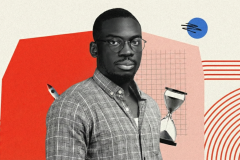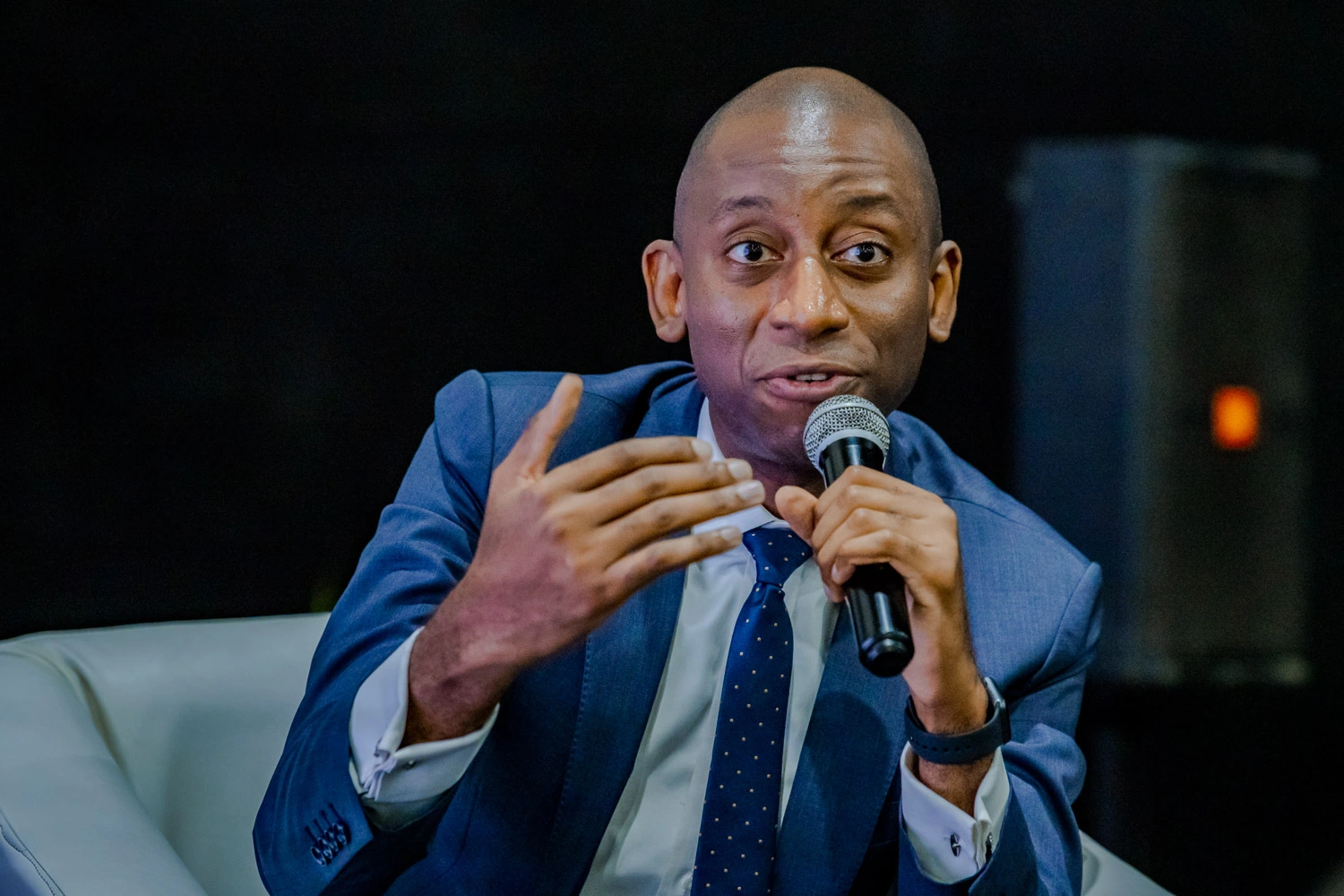This story was contributed to TechCabal by Mukanzi Musanga and first appeared in Open Democracy
Facebook’s former content moderation firm has been accused of shielding an employee who allegedly raped two colleagues and sacking one of his victims to protect the company’s reputation. Two former employees in Sama’s Kenyan office have told openDemocracy that managers fostered an unsafe work environment by ignoring or minimising their allegations of rape against one of their colleagues.
The allegations, which have been reported to the police but are not part of any ongoing legal challenges, are the latest made against Sama by its former African employees. The US-based tech firm is being sued – along with Meta, which owns Facebook – in Nairobi for unlawful redundancy and blacklisting after laying off all 260 of its content moderators in Kenya in March, having ended its contract with Facebook.
Hope Mandi, one of the women alleging rape, moved from South Africa to Nairobi in May 2021 after landing a job at Sama. In the same month, Mandi moved into an apartment complex on the Imara Daima estate. She says that weeks later, she was raped by a colleague who lived nearby and had come to her apartment in what appeared to be a friendly visit. Mandi said they were chatting when he first tried to kiss her and then raped her after she asked him to stop.
Mandi said that after the man left: “My immediate thought was to report him to Sama. The first person I confided in was a colleague, who informed the management of the assault.” She was taken to a hospital chosen by Sama’s in-house counselor. Once there, the counselor handled all the paperwork. Mandi claims Sama was trying to control everything and keep a lid on the rape.
Having only recently moved to Kenya, Mandi assumed Sama would assist her in filing a local police report. But she says a senior manager instead told her not to involve police. “Afterwards, there was no further action from the company. They went quiet except for the calls from the counselor, who repeatedly tried to persuade me to forgive him,” she said.
In one instance, Mandi told openDemocracy, she was on the phone with the counselor when, without warning, they added her alleged rapist to the call so that he could apologise – despite her having already refused to meet with him face-to-face. Mandi also feels she was compelled to suppress her emotional distress at work and continue to sift through Facebook content “where people were being sexually violated”, while her own assailant sat a short distance away.
“He attacked and raped me but faced no consequences despite me reporting him to Sama,” she said. Sama’s global service delivery vice-president, Annepeace Alwala, told openDemocracy that the organisation provides “a safe and respectful environment” for employees and treats all allegations of misconduct seriously. Alwala alleges that Mandi withdrew the sexual assault complaint that she initially provided.
“We can state that in this first instance, which took place outside of work, the only witness recanted their statement, and therefore we had no way to action any allegations of wrongdoing.” Mandi refutes this, claiming she never withdrew her statement. “That is such a lie,” she said.
A second attack
Another former Sama employee told openDemocracy that, just over a year after Mandi’s alleged attack, she was assaulted by the same man. Zani Mazwai also worked in Sama’s Kenya office and moved into Mandi’s apartment building in August 2022. Just after 4 a.m. on 11 September, Mazwai was awoken by a call from the man, who still lived nearby.
The man said he needed Mazwai’s help and came to her door. Although half asleep, she was concerned about him and let him in. She says he pounced on her and raped her, then fled. “I was in so much shock that I couldn’t process what had just happened,” said Mazwai. “I was able to call Mandi, who immediately came over and took me to her apartment.”
Mandi took Mazwai, who was “crying and distraught”, to the hospital for a medical examination. Mazwai says officials at Sama wanted to handle the alleged attack internally through a disciplinary hearing for the colleague she said attacked her. She claims they told her she’d need to be in the same room as him to “give an account of what happened.”
“I felt uncomfortable about this, so I decided to file a police report instead. I also told my whole family about it,” she said. “The senior officials were not happy that I filed charges because they wanted to handle it internally.”
Mandi then revealed to Mazwai that the man had raped her too, and also recorded a formal statement with the police. Two months later, in November, Mandi said she was falsely accused of “coming to work drunk and unable to walk or talk.” She was fired the following month and given a severance payment of 50,000 Kenyan shillings ($350) earlier this year.
“That was less than a month’s salary,” she said. “I was so angry about everything at that time so I didn’t dispute it. I didn’t want anything to do with Sama.” When asked about this, Alwala from Sama declined to respond, citing a need to protect “employees’ privacy and confidentiality”. Mandi believes Sama got rid of her to protect their image.
“Firing me was an attempt to cover up the fact that they had sheltered a serial rapist, who had previously assaulted me, then done the same to another moderator. This looked bad for them,” she said. Meanwhile, Mazwai was given some time off work after her assault but was soon asked to go back, and her request to work from home declined. In March, she was among the 260 content moderators let go by Sama and is now a party to the lawsuit alleging unlawful redundancy and blacklisting.
Alwala stated that the company suspended and sacked the alleged assailant after becoming aware of Mazwai’s police report.
Getting justice
After Mazwai filed a police report, an arrest warrant was issued for the women’s alleged attacker. He fled to Uganda. But he also called Mazwai to demand she drop the charges. “He said I was ruining his life. I felt scared because I don’t know what more he is capable of,” Mazwai said. She says the rape has made her scared of leaving home during the day.
After speaking to other former Sama colleagues, openDemocracy has established that the man is back in Nairobi – but the police claim they are unable to make an arrest unless Mazwai accompanies them. The head of Imara Daima’s Villa Police Station, James Mose, said this is because they do not know what he looks like and she has not been able to provide a photo.
“We want the lady to identify the guy at the arrest but she has declined the request to accompany us, saying that she is scared. She can even disguise herself by wearing a mask to cover her face,” Mose told openDemocracy.
Mazwai said she would rather make an identification once her attacker is in police custody. “I don’t want to be near that man. My life is no longer the same because of him. Sadly, the system is letting him live out here and who knows how many other women he hurts,” she explained.
A police chief at another station in Kenya, speaking on the condition of anonymity, told openDemocracy that the law does not compel rape victims to be present at the arrest of their assailants, in part for their own safety.
“What is important is for the victim to give a description of the assailant. If the person is known – his full name and his place of work, if he is in active employment – then it shouldn’t be difficult for the police to proceed with an arrest,” he said.
openDemocracy was able to determine the man’s new place of work from speaking with former and current colleagues and passed this information on to the police. Mose later said that although officers had visited the area, they had been unable to find his office.
Mandi, who is now back home in Durban, South Africa, said the apathy both women have received from the police and the tech company has adversely affected her mental health and professional future.
“Sama should not get away with the negligence with which they handled the assaults. They forced me to work with an abuser, who insisted on interacting with me,” she said. “They did nothing to protect me from him. They didn’t even follow up to make sure I got appropriate counselling.”
Mandi added: “When I was in Nairobi, I was planning on my two children joining me from South Africa. I was even looking at schools for them, but all these dreams just vanished.”




















